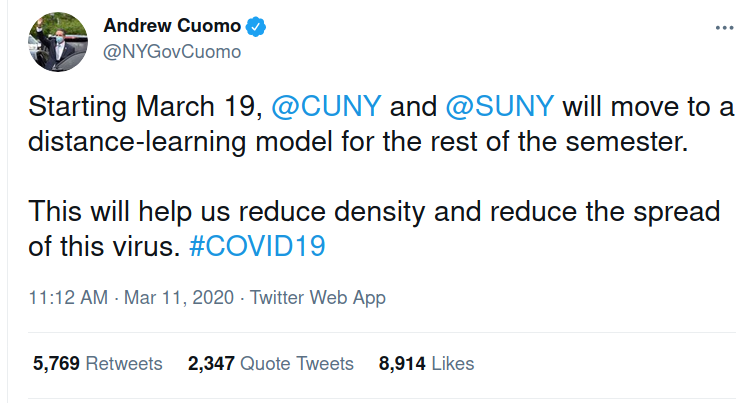Supporter Urges Voters for Andrew Cuomo, Dismissing Polls as "Rigged" Amidst Comeback Speculation

A social media post from a user identified as "Jean" has issued a direct call to action for former New York Governor Andrew Cuomo, urging supporters to "just go out and vote for @andrewcuomo and bring 10 friends & family members." The tweet, dated October 30, 2025, also advised followers to "Stop looking at the rigged betting markets and polls," reflecting a common sentiment of distrust in traditional political forecasting tools. This public appeal comes amidst ongoing speculation regarding Cuomo's potential return to politics, despite no formal campaign announcements.
Andrew Cuomo resigned from his position as Governor of New York in August 2021 following multiple allegations of sexual harassment and an impending impeachment inquiry. A report from the New York Attorney General's office detailed findings that Cuomo had harassed 11 women, creating a hostile work environment. While he denied the most serious claims, Cuomo cited the need to avoid political turmoil as his reason for stepping down.
Since his resignation, Cuomo has maintained a degree of public visibility, launching a podcast, giving interviews, and commenting on political matters, indicating an effort to remain relevant in public discourse. Political analysts have discussed the possibility of a comeback, with some media reports in late 2023 and early 2024 suggesting he is still weighing future political options, though concrete plans for a 2025 election bid have not materialized.
The tweet's dismissal of "rigged betting markets and polls" touches on a broader public debate about the accuracy and impartiality of political forecasting. While polls aim to gauge public sentiment, they can be influenced by various factors such as sampling errors and voter non-response, sometimes leading to inaccurate predictions. Betting markets, which aggregate financially incentivized predictions, are often considered robust but are also not immune to shifts in sentiment or unexpected events, contributing to public skepticism about their infallibility.
This grassroots call to action highlights the enduring support some individuals hold for the former governor, even in the absence of an active campaign. It underscores the passion within certain segments of the electorate and their readiness to mobilize, irrespective of official political timelines or prevailing public opinion indicators. The post serves as a reminder of the complex and often emotionally charged landscape of political advocacy.